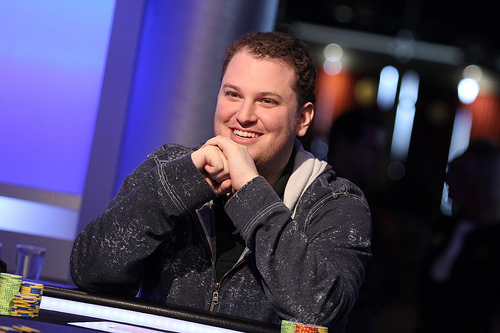
Scott Seiver Argues With SHRPO Payout Structure

Scott Seiver was less than happy about an original payout decision at the 2014 SHRPO tournament $100,000 Super High Roller event.  (Image: PartyPoker)
Poker pro Scott Seiver and the Seminole Hard Rock Poker Open (SHRPO) found themselves at loggerheads this week after the former discovered an issue with the payout structure in the $100,000 Super High Roller.
Although the organizers were initially concerned that the event only attracted nine runners, including the likes of Jason Mercier, Dan Smith and the aforementioned Seiver, it was the confusion surrounding the payout structure that caused the biggest issue.
According to Seiver, the original structure sheet indicated that three players would take home a return on their investment. However, Seiver claims that he and his tablemates were told only two places would be paid out. Operating on this basis, Seiver et al played through the session, only to be told at the close of Day 1 that, in fact, three players would receive a payout.
Incensed by the conflicting information, Seiver asked to speak to the casino’s director of poker operations. Unfortunately, the man in charge was “on vacation” and unable to clear up the mess; however, the staff overseeing the tournament did confirm that the initial announcement to pay two players was a mistake.
Payup the Payout
Making the argument that his strategy on Day 1 was based on there being two payouts, Seiver demanded that the decision be reversed. Stating that the situation was “beyond unacceptable” and harmful to those that had made ICM decisions based on a certain dynamic, Seiver spent two hours debating with the casino’s management team. Eventually, the experienced high roller managed to convince the organizers to “uphold the initial payouts”, pay two players and, in his opinion, preserve “game integrity.”
Debating the Decision
While many thought that this would be the end of the issue, Jason Mo and Ryan Fee were quick to criticize the move, and pointed out that Seiver had a vested interest in pushing for two payout places. Tweeting soon after Seiver’s announcement, Fee stated that the decision was outrageous: “Scott yells at them and they decide to change it to two player payout. Scott has like 550k, everyone else ~100k,” Fee added.
Seiver moved to defend his position, clarifying that his intention wasn’t to improve EV, but to “protect the tournament” and prevent future instances of event organizers creating a “slippery slope of change after the fact.” Of course, the incident has caused a divide amongst the game’s top players, with some siding with Seiver, and the rest arguing that a player having that sort of influence is a dangerous precedent to set.















0 Comments